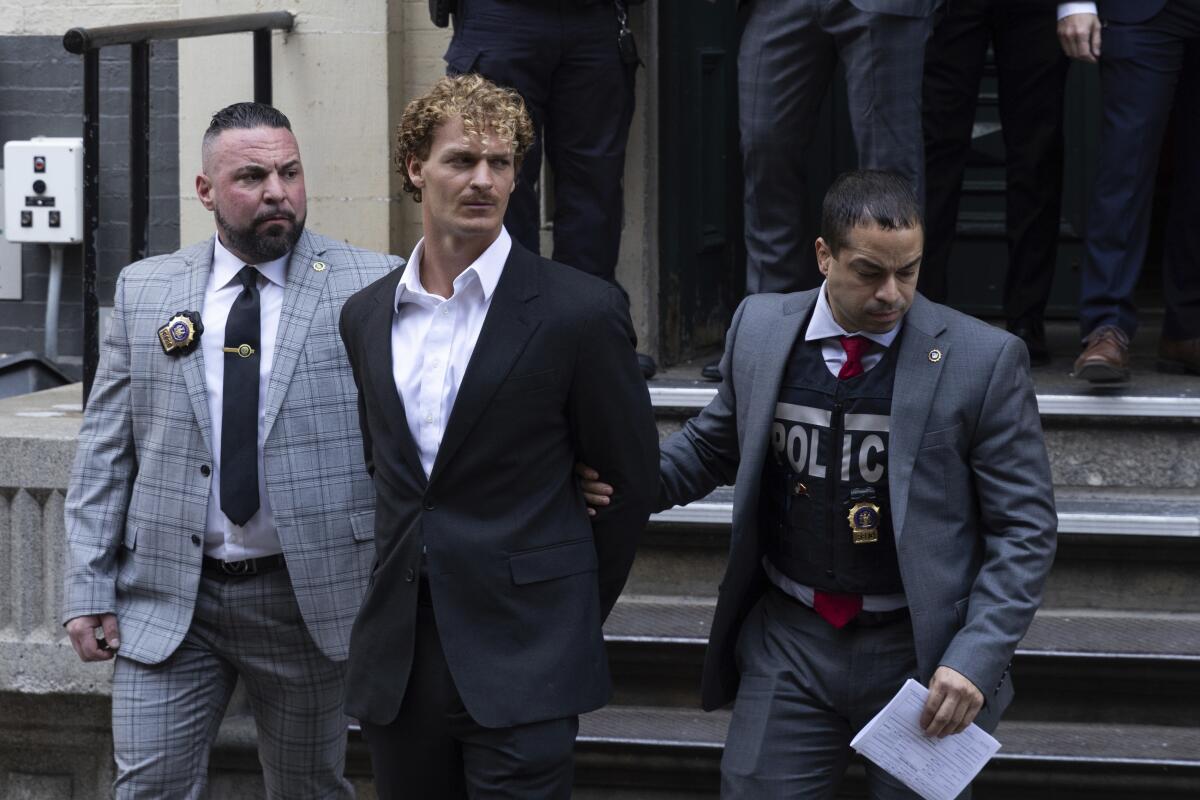Column: Charging Jordan Neely’s killer is just a start

Jordan Neely’s killer was arrested on Friday in New York and charged with second-degree manslaughter. No matter how that case turns out, there’s little reason to feel a sense of relief.
Neely, a 30-year-old unhoused man well known on the subway system, was begging for food and water last week in “the greatest city in the world” in “the greatest country in the world.”
If there were ever a place a desperate person like Neely could get help, you would think New York City would be it. Instead, he was killed. Daniel Penny, a 24-year-old ex-Marine, crushed Neely’s windpipe while trying to protect people who might not have been in any immediate danger. It’s all awful. Neely’s lifeless body left lying in his own feces on the floor of the F train. A tragic ending to a story already riddled with tragedy.
When Neely was just 14, his mother was murdered by her boyfriend, stuffed in a suitcase and left on the side of a road. He went into the foster care system afterward. He struggled with mental illness. He was arrested repeatedly and reported to social services more than 40 times. And while he had entered multiple care situations, he was also known to disappear for long stretches, hindering treatment.
The guilt or innocence of his killer will be decided by the justice system, now that Penny has been charged with second-degree manslaughter. He faces up to 15 years in prison if convicted. Given the races of the men, it’s easy to see how this development could be lumped together with other examples of racial injustice.
But while the racial component of the story is hard to ignore, I don’t feel this is a story about systemic racism as much as it is about our failing mental health system. Race is certainly a measurable variable when it comes to access to healthcare in general. However, the truth is Neely did receive treatment. On numerous occasions.
Ten years ago he admitted himself to Mount Sinai Morningside after telling police officers he was hearing voices. Three years later police brought him to the hospital because he was suicidal. Neely was on New York City’s short “top 50” list of homeless people in serious need of care.
Neely received aid from the Bowery Residents’ Committee. He got help. Just not the kind that might have saved his life.
That is a tragedy for the Neely family. But with the backdrop of the growing number of mass shootings committed by people in need of mental health treatment, the manner in which we help people like Neely should be viewed with a much wider lens — and with much more urgency. The kind of urgency the nation took when the Bush administration greenlighted the Transportation Security Administration shortly after 9/11. The kind of urgency that finds millions of dollars to send aid to Ukraine.
As tragic as the story of Neely is, it’s not rare. Most cities have mentally ill people living on the streets. And sometimes they die there. Sometimes they harm others, as Neely did. And sometimes they are the ones who are harmed, as he also was. Neely didn’t deserve to die, that much we know.
If nothing more comes out of this than a conviction, his death becomes even more tragic.
More to Read
A cure for the common opinion
Get thought-provoking perspectives with our weekly newsletter.
You may occasionally receive promotional content from the Los Angeles Times.











